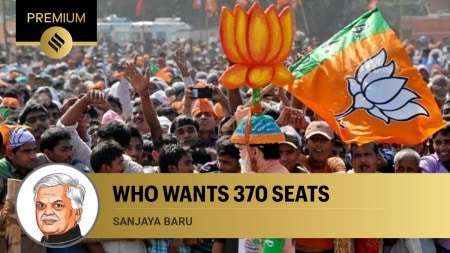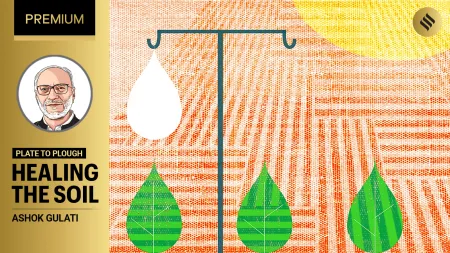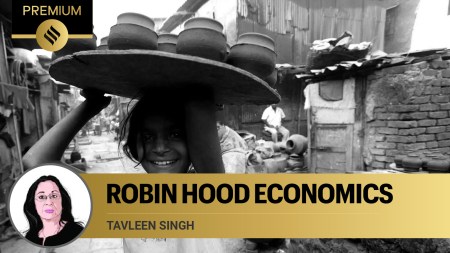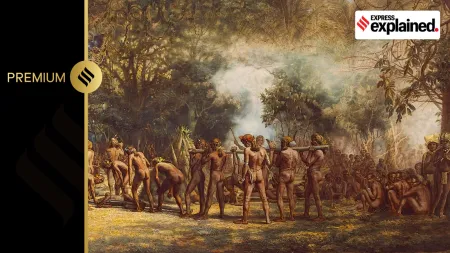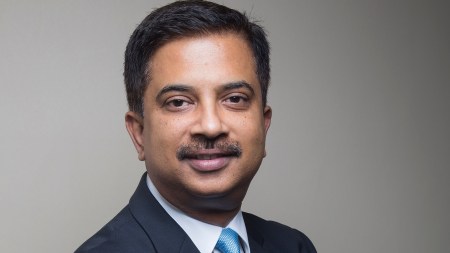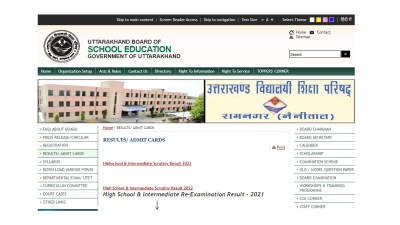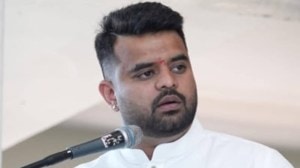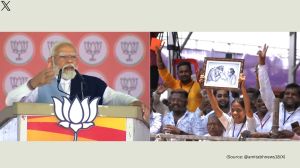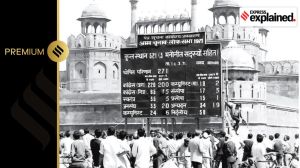- India
- International
How talks froze: Centre says we yielded, farmers insist repeal was always key demand
Govt-farmer talks: This lack of movement has hardened the divide and poses the main challenge as both sides work on their next steps.
New Delhi | Updated: December 15, 2020 14:56 IST
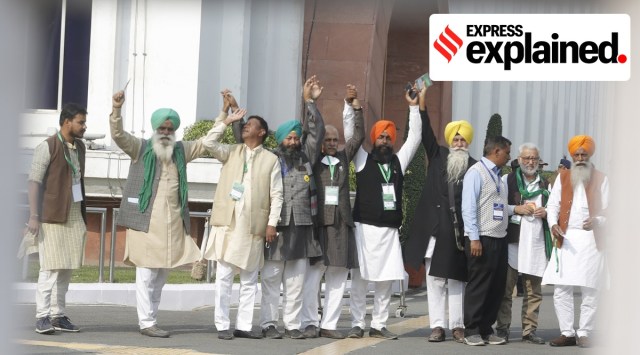 Leaders of farmer unions arrive at the Vigyan Bhavan for the fifth round of talks with the government, in New Delhi on December 5, 2020. (Express Photo: Amit Mehra)
Leaders of farmer unions arrive at the Vigyan Bhavan for the fifth round of talks with the government, in New Delhi on December 5, 2020. (Express Photo: Amit Mehra)
On October 13, the Number One item in the memorandum issued by protesting farmers was the demand for the repeal of the three Central farm laws passed in a controversial session of the Rajya Sabha on September 20.
Today, December 9, after six rounds of talks, involving over 20 hours of deliberations, protests on the streets of Punjab, Haryana and the capital, farmer leaders were back to underlining the same item.
This lack of movement has hardened the divide and poses the main challenge as both sides work on their next steps.
Officials in the Government claimed that they had “yielded” and given “assurances” based exactly on what the farmers had asked for during the talks in Vigyan Bhavan.
“They asked for assurances on MSP and tax parity and the court process. If repeal was the only demand, then what was there to discuss over six rounds?” said a top government official. “We have given the assurances that the farmers were asking for.”
Not quite, say farmers.

In fact, they underline that the repeal demand has been a consistent one along with hardwiring MSP into the law and it is the government that has been equivocating.📣 Follow Express Explained on Telegram
In the first round of talks with the Centre held between 29 representatives of the farm unions of Punjab and Union Agriculture Secretary Sanjay Agarwal on October 14 in Krishi Bhawan, farmer leaders had made a string of demands.
These included repealing the farm laws and the Electricity Amendment Act, 2020; legally ensuring government procurement on minimum support price; withdrawal of the Electricity (Amendment) Bill, 2020; withdrawal of cases registered against activists and protesters; and implementation of Swaminathan Commission report to fix MSP with C2+50 percent formulae.
Said Jamhuri Kisan Sabha general secretary Kulwant Singh Sandhu: “In the first round of talks we had given a letter to the Secretary, stating our eight demands. These demands included repealing of three farm laws.” He said that this was never taken off the table.
Even a memorandum signed by about a dozen farm union representatives and submitted to Agarwal on October 14, mentions this as among their demands.
After the fifth round of talks with the Centre on December 5, farmers reiterated the repeal demand. Even when Union Agriculture Minister Narendra Singh Tomar announced that the government was willing to reconsider some of the provisions of the farm laws to bring samyata (level playing field) between the APMC mandis and private markets, farmer leaders hardened their stance.
“We had mobilized people on the issue of repeal. We resolved not to come back until the repeal of three laws and withdrawal of two bills,” Sandhu told The Indian Express.
Earlier, as protests spread across the Malwa region of Punjab, on July 27, as many as 11 unions had travelled on tractors from their respective villages and submitted memorandums to their MPs against the then far, ordinances.
The protests got a big push when on August 19, all 31 farmer unions of Punjab, including khet mazdoor (farm labourer) unions, decided to work in coordination.
Their memorandums to the PM and Punjab government also largely focused on the issue of repeal of the ordinances and guarantee on MSP.
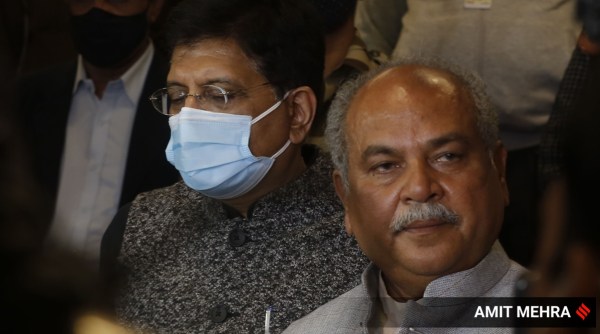 Union Agriculture Minister Narendra Singh Tomar speaks to the media outside Vigyan Bhawan in New Delhi on December 5, 2020. (Express Photo: Amit Mehra)
Union Agriculture Minister Narendra Singh Tomar speaks to the media outside Vigyan Bhawan in New Delhi on December 5, 2020. (Express Photo: Amit Mehra)
The protests intensified after the three laws were passed. On September 23, all 31 farmer unions announced ‘rail roko’ agitation from October 1, along with dharnas outside malls, petrol pumps of corporates and even outside the residences of BJP leaders.
This was again accompanied by growing demand for repealing the three laws. There was also a consensus that if the government were to guarantee the continuation of MSP – via law — and APMCs besides making amendments to regulate the private players, the farmers would be appeased.
However, once the farmers reached Delhi. the maximalist demand for repeal hardened. “The Government heard what they wanted to hear,” said a farmer leader. “We always wanted these laws repealed.”
A section of officials in the Government attributed the hardening of the farmers’ stand to the presence of Left leaders in the negotiating team. “They have a strong ideological opposition to the Government,” said an official. “They will never yield, there are more than 35 representatives and Left leaders are dominating the discourse.”
The government hopes it can peel off some of these groups from among the 35 but given the united front they have presented in rejecting the Government’s assurances and asking for a repeal, that may be a challenge.
Clearly, the fault-lines are drawn.
More Explained
EXPRESS OPINION
Apr 30: Latest News
- 01
- 02
- 03
- 04
- 05


